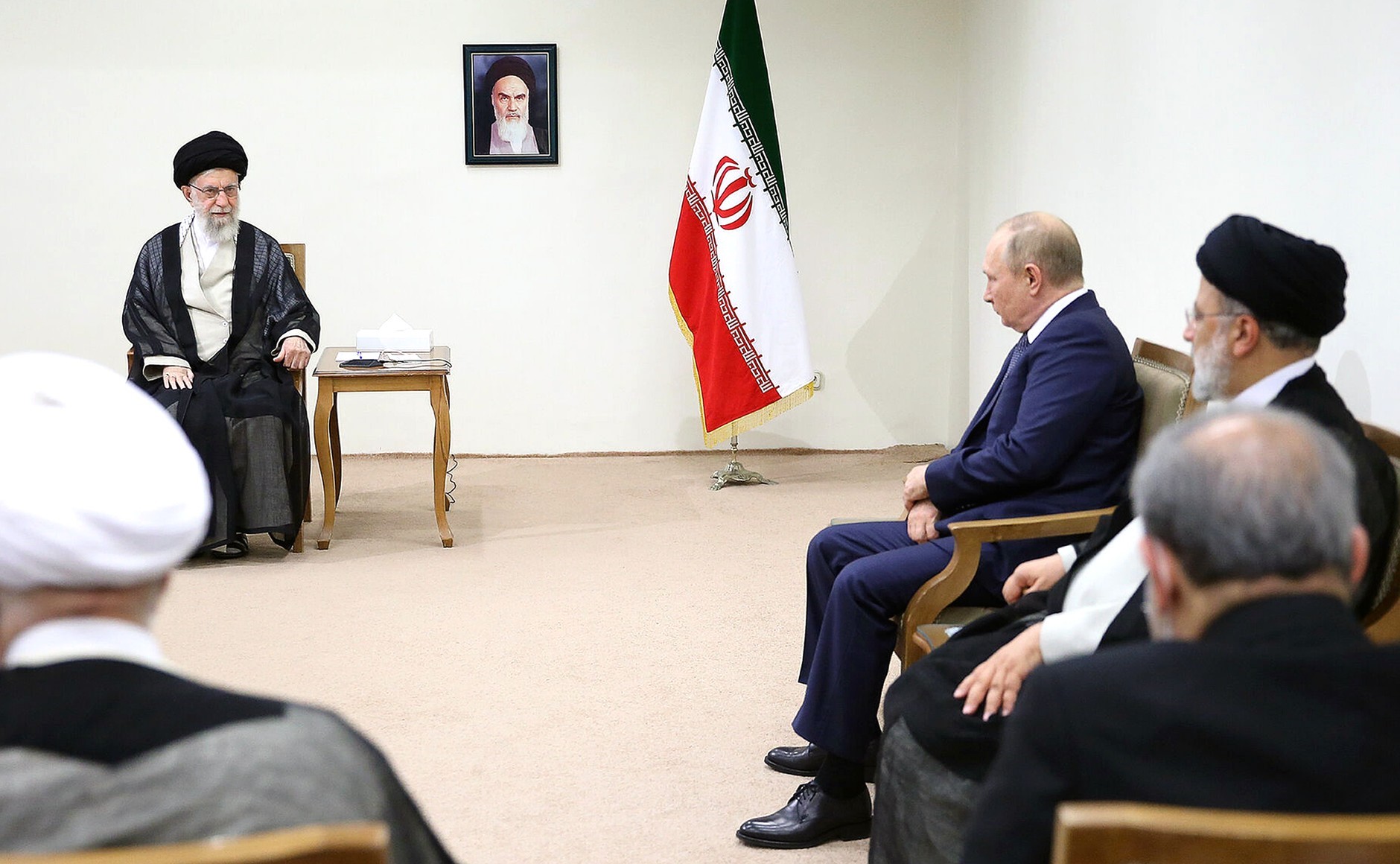
Russia Monitor is a review of the most important events related to Russian internal and external security, as well as its foreign policies.
Date: 21 July 2022 Author: Grzegorz Kuczyński
Putin Heads To Tehran For Talks, Iran Risks Amid Better Ties With Moscow
Russian President Vladimir Putin on July 19 held bilateral and trilateral meetings with the leaders of Turkey and Iran and then Iranian President Ebrahim Raisi and Supreme Leader Ayatollah Ali Khamenei. While traveling to Iran, Putin was keen to show that international sanctions have failed to isolate Russia because Moscow has some powerful allies across the globe.

Russian President Vladimir Putin met Turkish and Iranian leaders in Tehran––only his second foreign trip since he launched the invasion of Ukraine. But unlike the Russian leader’s visit to Central Asia, the meeting agenda mattered not only to Russia. Unblocking Ukrainian grain exports via the Black Sea was also high on the meeting agenda. The Russian leader also produced his version of the invasion of Ukraine. The leaders of Russia and Iran discussed Western sanctions as Iranians have plenty of experience and channels they have used to circumvent sanctions. Kremlin spokesman Dmitry Peskov told Iranian journalists that Russia, like Iran, was used to “dealing with Western sanctions.”
As reported a few days before the July 19 trip, the leaders of Russia and Iran would allegedly discuss a new deal between the two states. Putin’s foreign policy aide, Yuri Ushakov, said the countries shared “a desire to take their relations to a new level of strategic partnership.” Indeed, both countries could see this for their military-technical cooperation, but a rapid increase in trade seems unlikely.
Iran’s Raisi sought to win staunch support from Putin for a revived nuclear deal to eventually lift some sanctions on Iran. The sourer are ties between Iran and the West, the better for Moscow, though. The lifting of oil sanctions on Iran would release more oil to the market, making it cheaper and thus delivering a severe economic blow to Russia. Russian oil shipments dropped amid Western sanctions but the federal budget enjoys more cash due to a rally in global energy prices. While in Tehran, Putin sought to discuss his idea to pump oil through Iran to Moscow’s top purchasers––through the Caspian Sea to Iran, and then from Persian Gulf ports further to India and China. The problem is that, however, Russian oil now competes with Iranian crude in many countries throughout Asia. It is hardly imaginable that Tehran would facilitate supplies to India or China even more than now.
Media reports surfaced that the Iranian government is preparing to supply Russia with several hundred drones, including weapons-capable drones. The Russians reviewed Shahed-191 and Shahed-129 drones, according to some U.S. sources. The Kremlin did not confirm this information, saying the topic will not be on the July 19 meeting agenda. Iranian foreign minister refuted these claims when talking to his Ukrainian counterpart on July 15. But sources close to the Islamic Revolutionary Guard Corps (IRGC) claim that Iran could be gearing up to supply Russia with combat drones. “Currently, we are ready to export military equipment and weapons,” Iran’s army ground forces commander Kiumars Heydari said a week after the United States accused Iran of preparing to send “several hundreds of drones” to Russia.
The focus of the talks among the three presidents was the decade-old conflict in Syria. Indeed, Russia, Turkey, and Iran form what is known as the Astana Triangle, a successful platform that helped all three to accomplish many goals in Syria. The parties would discuss efforts to encourage a political settlement, while Erdogan is expected to take up Turkey’s threats of a new military offensive in northern Syria to drive away Syrian Kurdish fighters. Russia and Iran, both of which side with Syria’s Al-Assad, strongly opposed the planned incursion. Any effort to torment the situation in Syria could be a hurdle to Moscow, which is now busy attacking Ukraine, and Tehran––as the latter is afraid of Israel that has long sought to push Iranian forces out of war-torn Syria.
What Putin discussed with Raisi and Khamenei will soon come to light. The world will then learn whether Iranian diplomats tamed hawkish IRGC officials and conservative clergymen to tighten the military alliance with Russia regardless of possible repercussions from the West. If this happens and combat drones are delivered, Washington will no longer be keen to ease sanctions and renew a nuclear deal with Iran. It gives an asset to Iran’s enemies across the region, notably Saudi Arabia and Israel. A recent visit of U.S. President Joe Biden to both countries seems crucial in this context.
Support Us
If content prepared by Warsaw Institute team is useful for you, please support our actions. Donations from private persons are necessary for the continuation of our mission.
All texts published by the Warsaw Institute Foundation may be disseminated on the condition that their origin is credited. Images may not be used without permission.















